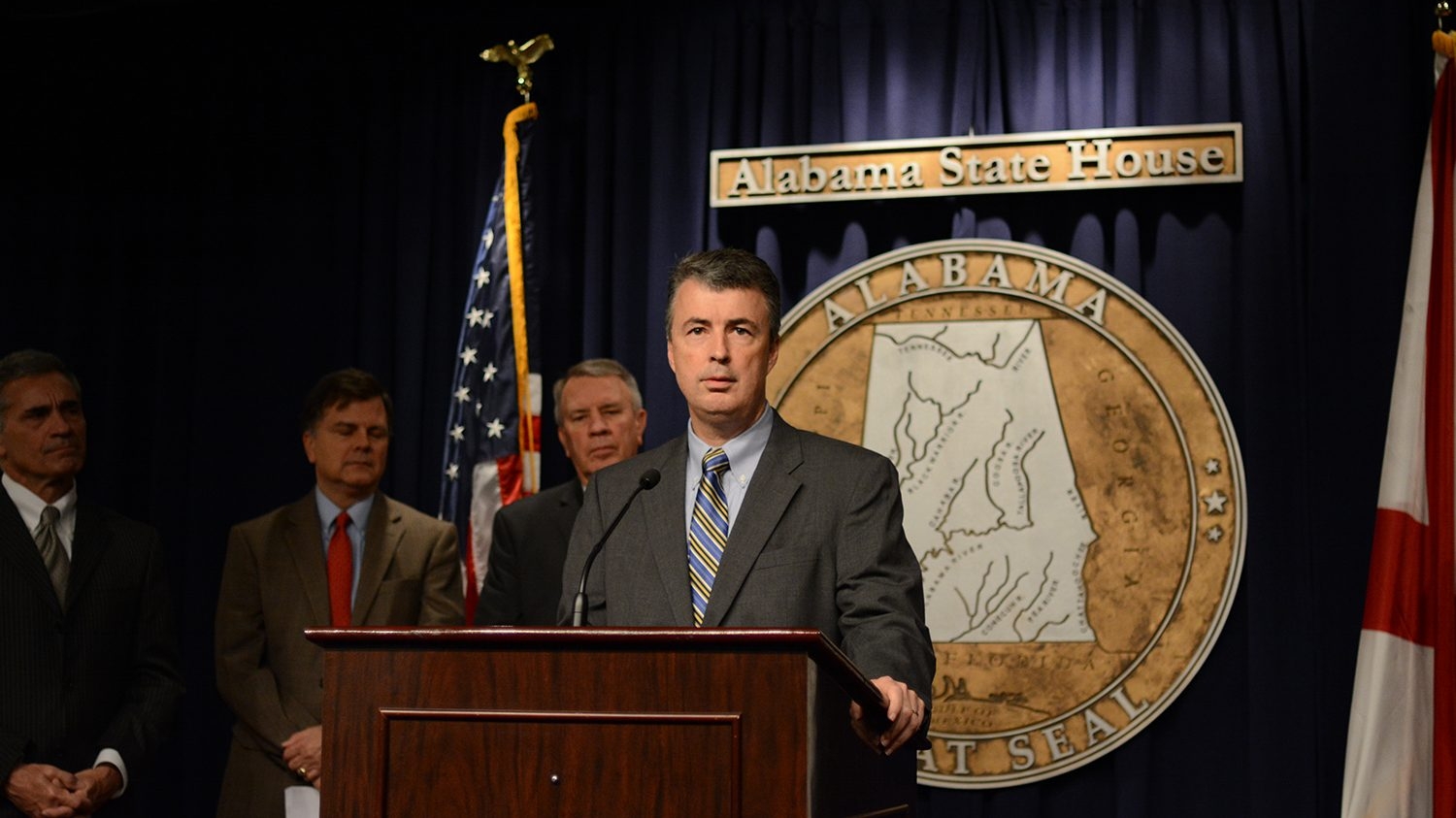Alabama Attorney General Steve Marshall announced Wednesday that a federal judge’s favorable initial ruling in a voting rights lawsuit against the state of Alabama’s congressional districting plan means there will be no change in Alabama’s congressional district map for the upcoming 2020 U.S. House elections.
“I am pleased that U.S. District Judge Bowdre agreed with the Attorney General’s argument that the plaintiffs in the voting rights lawsuit against the state of Alabama’s congressional districting plan waited too long to file their legal challenge,” Marshall said. “Any attempt by the plaintiffs to alter Alabama’s congressional map, should they ultimately prevail in their lawsuit, would not occur until after the upcoming 2020 congressional elections. The bottom line is the upcoming 2020 congressional elections in Alabama will not be affected by the lawsuit as it progresses in court.”
The plaintiffs in Chestnut v. Merrill, an action filed in the U.S. District Court for the Northern District of Alabama, alleged that the Voting Rights Act requires Alabama to draw a new congressional districting plan that includes two majority-black districts. Alabama currently has just one, the Seventh Congressional District, represented by Congresswoman Terri Sewell, D-Selma.
The plaintiffs argued that the litigation should be rushed so that the new districts could be in place for the 2020 congressional elections. The attorney general has questioned whether two majority-black districts can be drawn in Alabama without splitting important communities of interest or engaging in unconstitutional racial gerrymandering.
Judge Bowdre agreed with the attorney general’s arguments that the plaintiffs waited too long to file the suit.
The challenged districts have been in place since 2011, but the plaintiffs waited until 2018 to file suit after the challenged districts had been used in four elections and just two years before the next census, which will require the Alabama Legislature to draw new districts.
The district court agreed that back-to-back redistricting would prejudice the state and that Alabama can use the existing districts in the next election. The plaintiffs’ remaining claim for a declaratory judgment will go forward, but the district court ruled that the plaintiffs’ claim for injunctive relief is barred.
The lawsuit Chestnut v. Merrill is unrelated to a separate federal lawsuit filed by the state of Alabama and Rep. Mo Brooks, R-Huntsville, against the U.S. Department of Commerce, Alabama v. U.S. Department of Commerce, over the U.S. Census inclusion of illegal aliens in calculating the apportionment of congressional seats and state electoral college votes. That case is also being heard by the Northern District of Alabama.
The state Legislature is tasked with redistricting every ten years following the latest census. Alabama’s 2011 congressional redistricting was pre-cleared by the Obama Justice Department under the terms of the 1965 Voting Rights Act. The pre-clearance clause has since been ruled unconstitutional by the U.S. Supreme Court.


















































